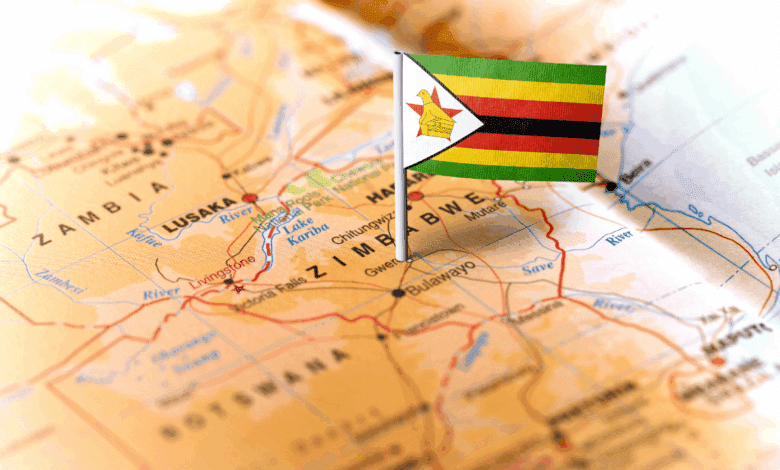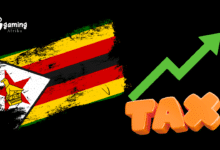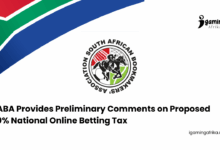Zimbabwe’s withholding tax on betting: good intent, tough reality

In late 2024, Zimbabwe’s government announced a new 10% withholding tax on all sports betting winnings, effective from 1 January 2025, as part of efforts to widen the tax base and capture value from the country’s fast-growing gambling sector. Presenting the measure in Parliament, Finance Minister Mthuli Ncube said sports betting had become “a lucrative industry” and that the tax would help ensure “the government can tap into this revenue stream for the benefit of all citizens.” The move followed a surge in betting activity particularly online as millions of Zimbabweans turned to mobile platforms amid economic pressures and high youth unemployment.
The new levy, which came into effect on 1 January, applies to all gambling winnings from both land-based and online platforms. According to government projections, it could raise around USD 15 million annually, based on estimated gross winnings of USD 150 million this year. Zimbabwe’s betting industry generated approximately USD 120 million in 2023, with online operations contributing about USD 45 million.
Official data shows the number of active online bettors rose by 15% in 2024 to over 300,000, with young people aged 18 to 35 making up about 60% of participants. With more than 5.2 million smartphones now in use nationwide, the country’s expanding digital access continues to fuel the growth of mobile betting platforms.
Read Also: DStv and GOtv Decoders Now Cheaper as MultiChoice Launches Festive Price Slash
Despite its fiscal promise, Zimbabwe’s new 10% tax on betting winnings has drawn criticism over its fairness and social impact. The flat rate, which carries no exemption threshold, has been described by tax experts as socially regressive, as it treats all bettors the same regardless of income or stake size.
As reported by iGaming Business, Marvellous Tapera, Founder and Managing Partner at WTS Tax Matrix, noted that compliance has also been costly for operators. To meet new reporting and remittance rules, firms have had to upgrade systems, strengthen accounting and reconciliation processes, train staff on tax procedures and customer communication, and ensure timely submissions to the Zimbabwe Revenue Authority (ZIMRA). Many have also sought external tax and legal consultancy to ensure full compliance.
“They also had to enhance accounting and reconciliation workflows to produce accurate monthly returns for ZIMRA (Zimbabwe Revenue Authority), train staff on tax procedures and customer communications, improve cash management and banking for timely remittances, and often consult tax or legal experts to ensure full compliance,” Tapera told iGB. “Although feasible, these changes were operationally demanding and particularly costly for smaller operators, requiring significant time and financial resources,” he added.
Smaller operators, in particular, face steep costs with system upgrades of up to USD 50,000 and annual tax-reporting costs near USD 20,000 putting pressure on margins and profitability. Industry observers warn that some companies could be forced to adjust odds or payouts to offset expenses, potentially disadvantaging casual players.
Tapera added that applying the same 10% rate to all winnings, without any exemption, is regressive in a low-income economy like Zimbabwe’s and risks pushing gamblers toward unregulated or offshore platforms. He also pointed to South Africa as an example of a more balanced model. He noted that the country’s 15% withholding tax applies only to winnings above R25,000, protecting casual players while still capturing revenue from high-earning bettors. Zimbabwe, he suggested, could adopt a similar exemption threshold or progressive rate system to ensure fairness without undermining revenue goals.
A February 2025 briefing from Deloitte echoed those concerns, observing that Zimbabwe’s fragile economic environment that is marked by high unemployment and rising living costs, requires a careful balance between fiscal policy and social protection. The firm noted that a withholding system can support responsible taxation “if carefully structured to exempt or protect low-income players.”
In a separate commentary, Matrix Tax School Zimbabwe stressed that fiscal reforms of this nature should be implemented “with deep socio-economic sensitivity and forward-looking executive judgment,” cautioning that overly broad taxation in a difficult economic period could have counterproductive social effects.
Analysts say that while the government’s intentions are clear, policy design and execution will determine whether the reform succeeds. A blanket tax might raise short-term revenue but could shrink the regulated market and erode public trust in formal betting systems.
Without targeted reforms such as progressive rates or exemption thresholds, a policy designed to strengthen regulation could instead push both players and profits beyond the reach of the regulated system.




















